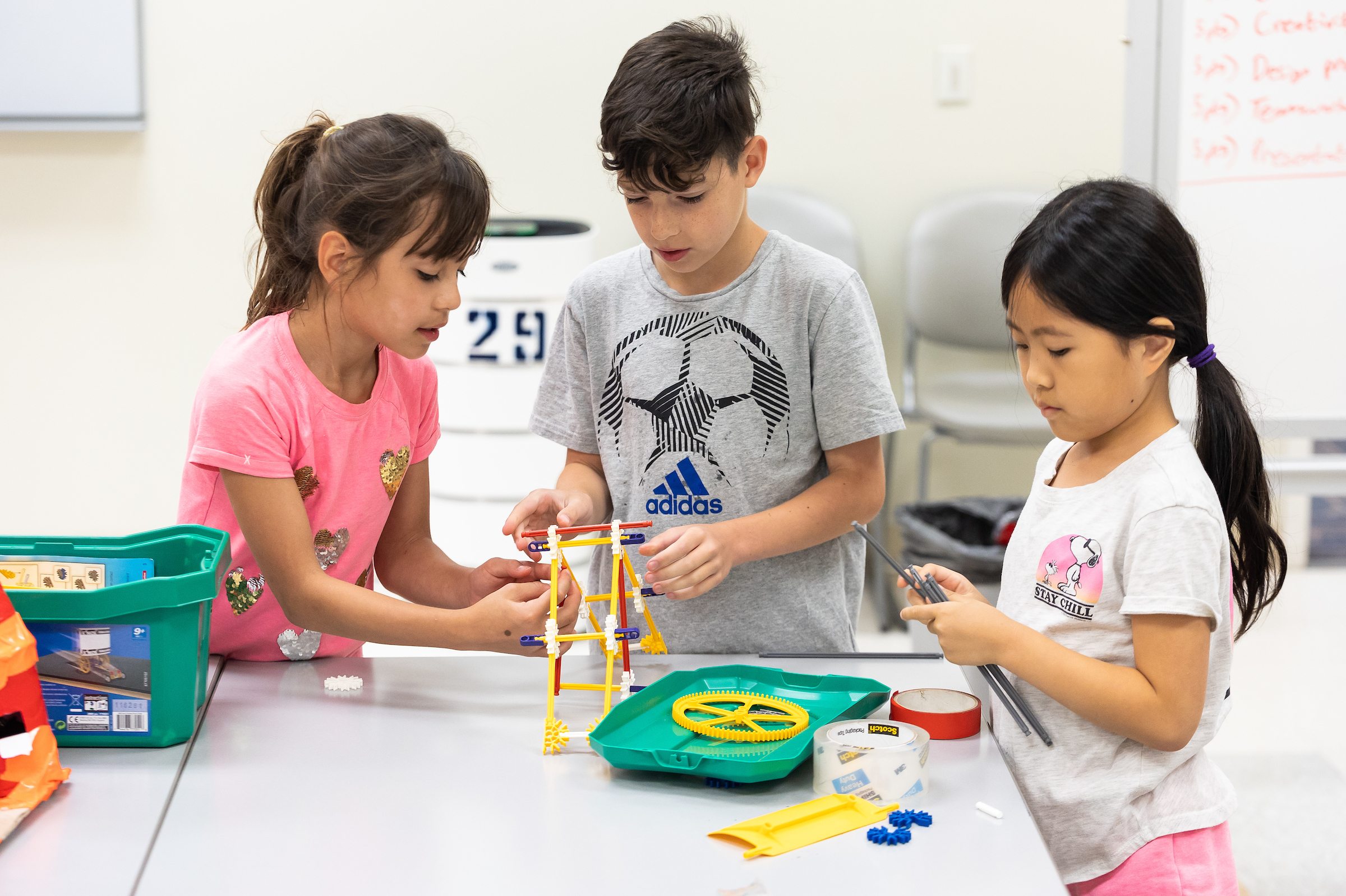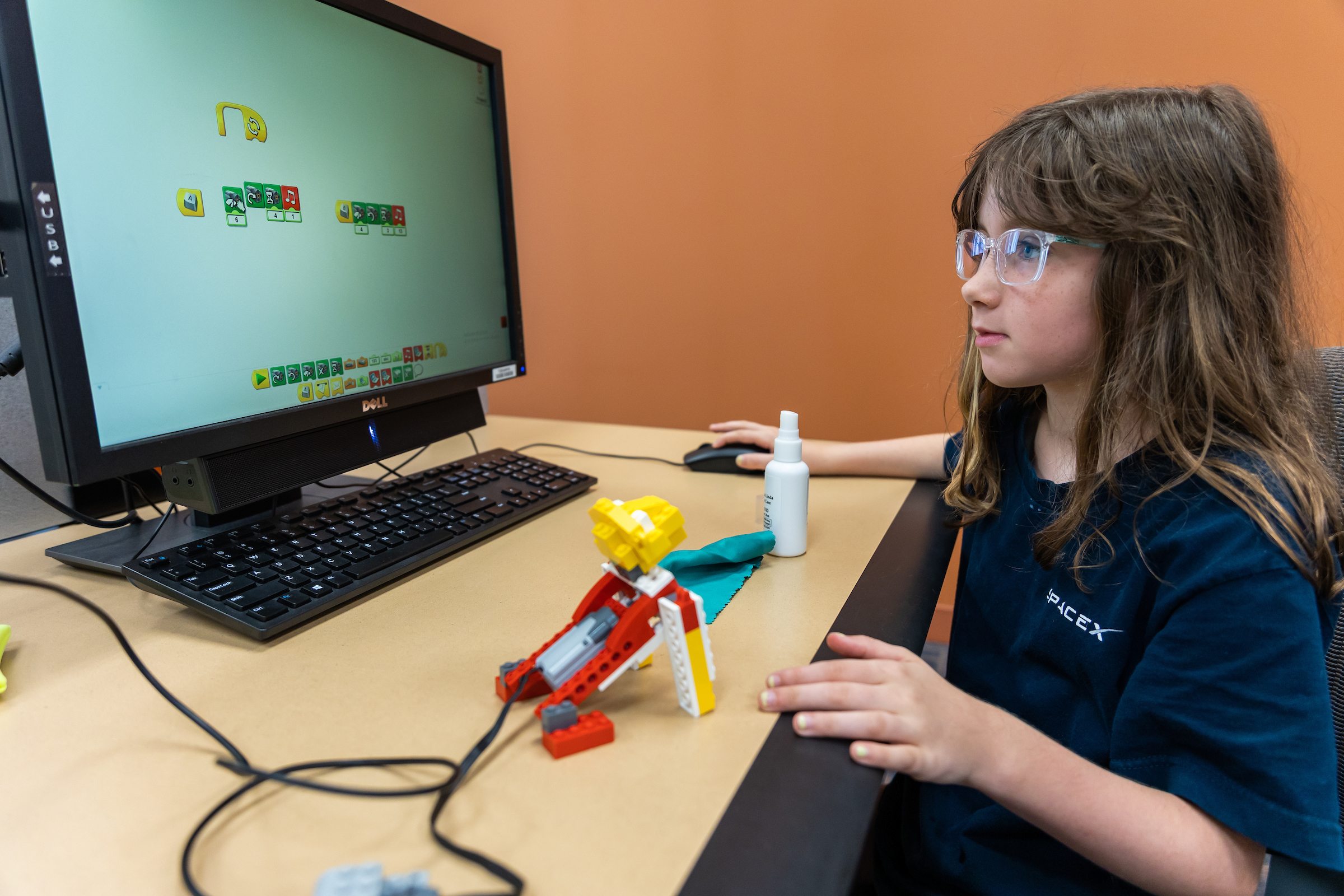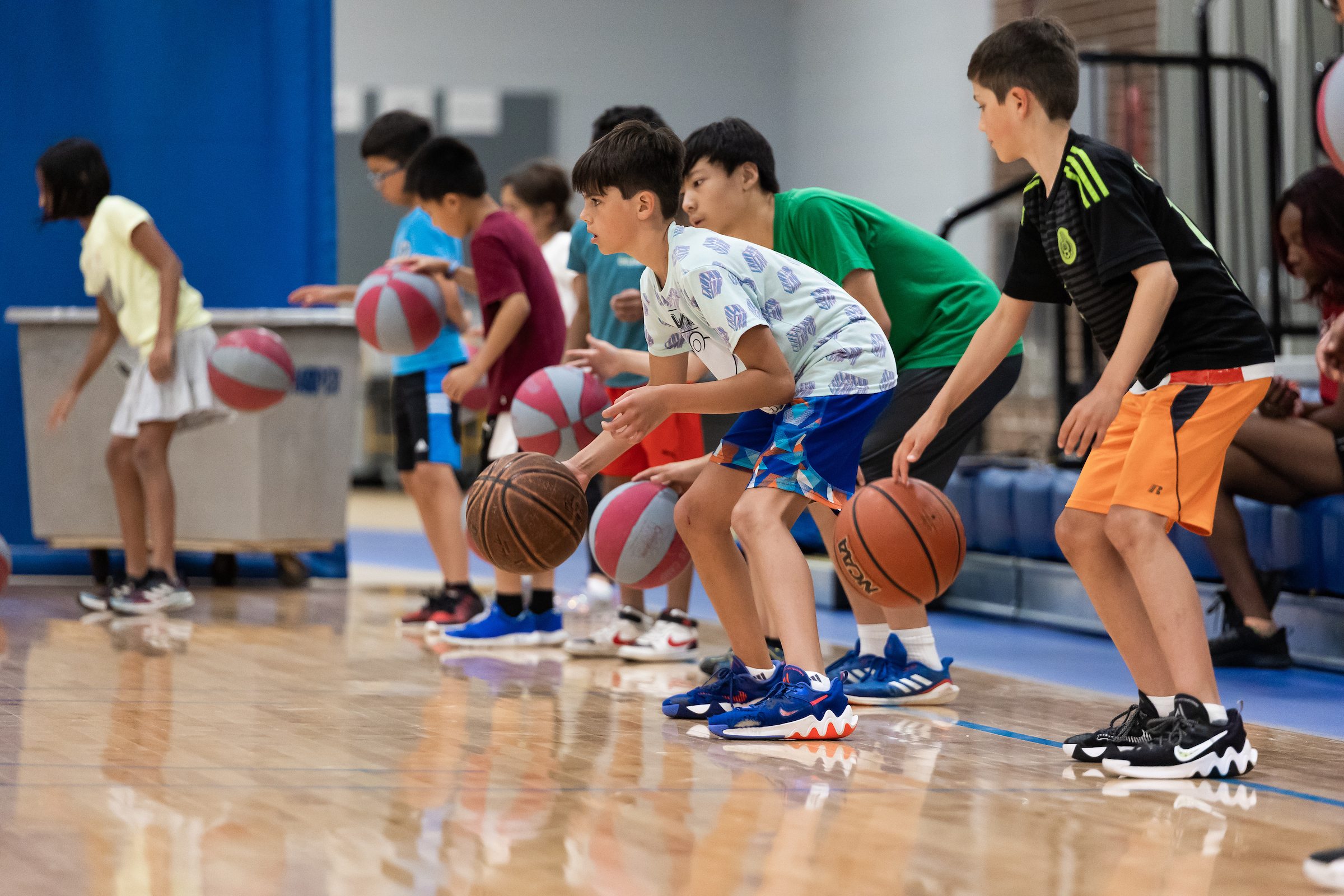
 For the last three years, Rosanna Humphrey’s two daughters have attended Harper College’s
InZone summer camp. They’ve learned cooking and baking. Swimming and tennis. Volleyball,
theater, and sewing—and probably other topics that have slipped Humphrey’s mind.
For the last three years, Rosanna Humphrey’s two daughters have attended Harper College’s
InZone summer camp. They’ve learned cooking and baking. Swimming and tennis. Volleyball,
theater, and sewing—and probably other topics that have slipped Humphrey’s mind.
Samantha, 13, and Eleanor, 11, love that the camps are fun, and they get a kick out of picking out and paying for their own lunches in a real college cafeteria. Humphrey, meanwhile, appreciates that the camp is age-appropriate and educational.
“Other summer camps are more like babysitting or are just playing games all day,” says Humphrey, of Schaumburg. “(My daughters) never get bored.”
InZone is for children aged 6 to 14. It runs this year from June to August, and the catalogue, as the Humphreys point out, is varied. The program promotes itself as a sports and enrichment camp, and its most popular topics include cooking, technology and coding, says Kevin Hahn, Harper’s manager of youth programming.
 The 10-week program comes mostly in one- and two-week sessions, allowing families
to pick and choose their own schedule and dates. They don’t have to commit to the
whole summer, or they can opt to enroll children for the full 10 weeks.
The 10-week program comes mostly in one- and two-week sessions, allowing families
to pick and choose their own schedule and dates. They don’t have to commit to the
whole summer, or they can opt to enroll children for the full 10 weeks.
The benefits of programs like InZone are well-documented. Studies have found that academic summer programs like InZone are an important tool for preventing summer learning loss, for example. Plus, these programs give students a chance to experience aspects of college at a young age.
“We can provide students with state-of-the-art facilities,” Hahn says. “They’re taking classes in what would be college classrooms during the school year.”
In theater classes, InZone students use the same stages used for Harper drama productions. Volleyball players use a college-level gym and learn from Harper volleyball coaches. Harper coaches provide instruction for basketball and soccer programming, too.
InZone also expands children’s social circles, Hahn points out, introducing them to peers from other school districts. It also exposes them to college. Participants learn what programs are available at Harper and can put them in the mindset of attending college. Studies have shown that most students decide on their higher education plans between eighth and 10th grades, “suggesting that interventions to influence students’ educational aspirations are most likely to succeed if they take place by eighth or ninth grade,” according to the National Center for Education Statistics.
Hahn, who has been in charge of InZone for 15 years, sometimes has conversations with parents who are hesitant about sending their children to the program. They’re concerned with Harper’s size, worried that their children might struggle with getting from place to place. Hahn stresses the program’s safety: Parents are welcome to walk their child from the parking lot to class and to stick around until the class is over, if they’d like. Each class, too, has two adults present: a head instructor and a program aide, who’s often a Harper education major and/or previous InZone participant. Program aides also assist with bathroom breaks and help escort campers from class to class—students are never unsupervised.
Within two weeks, Hahn says, previously worried parents marvel at how much their children have grown.
“The parents will talk to me and say, ‘I can’t believe he can walk from the car to his class. He’s so confident in getting there. He won’t let me walk with him,’” he says.
Since going remote in 2020 due to the pandemic, InZone has consistently offered more and more in-person programming each year. This year, the camp is almost fully on campus, which is important for the camps’ hands-on aspects.
Parents and guardians interested in learning more can visit ce.harpercollege.edu. The InZone course catalogue will be available starting in March. Those with questions can email inzone@harpercollege.edu or call 847-925-6300.
“It is an amazing program with a huge variety of classes to choose from,” Humphrey says. “It would be almost impossible to not find something your kids would like to take. And, most importantly, it is not just playtime all day, every day of the summer.”
